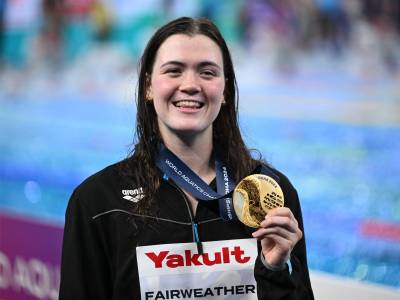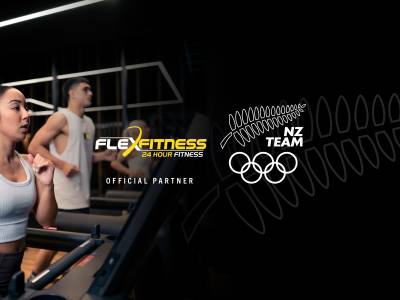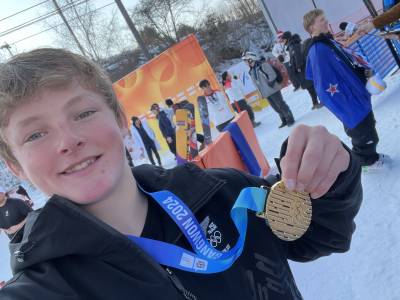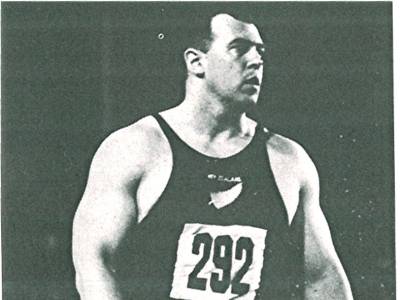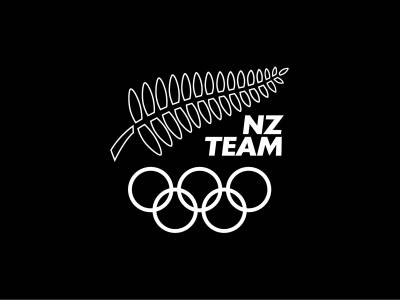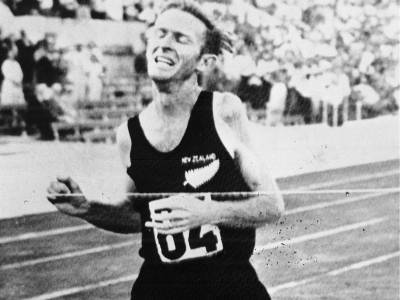Roy Williams, born in 1934, tried throughout his career to rid himself of the tag of being Yvette Williams' younger brother. All of New Zealand knew and admired Yvette. She'd won four Empire Games gold medals and for more than half a century was the only New Zealand female track and field athlete to win an Olympic gold medal. She is a sports icon.
“Like other New Zealanders I was inspired by Yvette. She was a pioneer who proved it was possible for us to do well in major competitions,” Williams explained.
“But on a personal level I wanted to get rid of the tag of being her younger brother. Even after I'd won national titles, I'd line up for a race and the announcer would say, ‘And in lane three is Roy Williams, younger brother of Olympic champion Yvette'. It used to annoy the hell out of me.”
Roy, too, was an outstanding sportsman, right back to his days growing up in Dunedin. But because of strange reasoning by New Zealand's Olympic selectors, he was never allowed to reveal his ability on the biggest sporting stage of all - at the Olympics.
It wasn't until the 1966 Kingston Empire Games, when Williams was nearly 32, that he finally got his chance.
At Kingston, he won the decathlon gold medal after two days of sweat and toil in formidably hot and humid conditions. Normally an Empire Games gold would not rate alongside medals won at an Olympics. But Williams was a special case.
That effort won him the New Zealand Sportsman of the Year title for 1966 and earned him induction into the Sports Hall of Fame in 1990. Sports followers knew just what that gold medal meant.
Williams should have been selected for the 1956 Melbourne Olympics, as a decathlete, but he wasn't. The decathlon was a new event in New Zealand and the selectors did not grasp Williams' ability and potential. He feels he'd have finished in the top eight in Melbourne.
Four years later he seemed sure to be chosen for the Rome Olympics after beating the qualifying standard, but inexplicably he was omitted.
By Tokyo, 1964, with the benefits of having competed in the American college system (he attended UCLA, working on campus to pay his way through), Williams had cemented a ranking in the world's top 10 and looked as certainty for selection. For a proven big-occasion competitor - he had by now played rugby to a high standard and represented New Zealand at basketball - a top eight placing was there for the taking.
Again he was overlooked. So at the age of 30 the only Games he'd attended had been the 1958 Cardiff Empire Games, when he'd finished sixth in the long jump and seventh in the triple jump.
There were no world champs back then and the Empire Games did not have a decathlon. Williams was a world-class athlete who was not being given the chance to prove himself.
Finally, the decathlon was added to the Empire Games programme for 1966, after a chain of events begun by Williams himself.
“In 1962 I spoke at our Western Suburbs annual meeting, calling for the decathlon to be added to the Empire Games programme. The matter was passed to the Auckland centre, then the New Zealand association, then the Commonwealth Games Federation, with the result that in 1966 there was a decathlon scheduled.
“Winning the 1966 Games decathlon was undoubtedly the highlight of my sporting career,” said Williams, “but like many things in life, the victory in the steamy heat of Kingston did not come easily. Far from it.
“Unlike modern athletes, we did not have the advantage of training and competing overseas before the Games. We came straight from mid-winter New Zealand, with only a brief stopover in Los Angeles before touching down in Kingston, and were immediately hit by temperatures in the 30s and humidity close to 100 per cent.
“A few of us had spent some hours in saunas in the weeks before departure in a bid - in a very amateur way - to acclimatise ourselves to the expected change in temperature. In my case, it was just as well.”
Williams' major opposition in the decathlon was clearly going to be the talented Welshman Clive Longe, a powerfully built black athlete who was born in Guyana. But it was the fearsome heat and humidity, as much as his fellow athletes, which most threatened Williams.
“The first day of the two-day decathlon began at 9am with the 100 metres. The organisation of the Games was horrendous and, although the field was not large, we didn't end the first day until 7pm.
“During the two-hour lunch break, I headed back to the Games village, took the shelves out of a refrigerator, and sat in it to cool off.
“The second day again started at 9am, with the 110m hurdles, but extended over an even longer period, with the 10th and final event, the 1500m, finally getting under way at seven minutes to midnight.
“My plan was simple. I was favoured to win, having had the best performance in the Commonwealth in the lead-up, and being the Commonwealth record-holder. So I wanted to assert myself on the opposition from the outset, build up a big early points lead and play ‘catch me if you can'.”
Williams did manage to build a handy lead, despite a nerve-racking hiccup in the second event, the long jump.
By the time the 1500m began, spectators and the many New Zealand competitors who had remained in the main stadium to cheer on one of their most popular team-mates felt Williams had an unbeatable lead. He led by almost 200 points and providing nothing major went wrong, he would soon be crowned gold medallist.
“I dreaded the 1500m,” he recalls. “Although I was always very fit, the 1500m invariably caused me the greatest problems. No matter how hard I trained, I was never able to build up my stamina. To add to my concern, my legs had started to cramp midway through the afternoon and I was concerned I might not be able to finish the 1500m.
“So I started the race very conservatively, not going out with the leaders, but running my own race.
“Clive Longe, knowing he had to beat me, set out at a very fast pace. After just one lap, he had put almost 100 metres on me - I could only just see his dark figure leaving the back straight as I was entering it. Suddenly I could see the gold medal I had worked so hard for slipping away.”
It was a critical moment for Williams. Should he pick up his pace in a bid to close the ever-increasing gap, and risking cramping, or should he continue at his own tempo and hope Longe slowed down?
“I decided to play safe and fortunately Clive did slow. The next time round he had gained no more. He was still that 100 metres ahead. On I plugged on what by now felt like wooden legs.”
At the finish Williams collapsed on to the infield totally exhausted. The first person to arrive was Longe, who offered warm congratulations - of all athletics events, the decathlon more than any other, builds up the camaraderie among competitors.
At last Williams was able to reflect on the 10 years of training in all weather, three hours a day, six days a week, 50 weeks a year. He thought about all the selection disappointments, and the number of times he'd been referred to as Yvette Williams' younger brother. He thought about the mighty triumphs of Arthur Lydiard's band of brilliant runners, all peers of Williams.
Now, Williams, thought, he too was able to call himself a champion. “The greater the struggle, the greater the satisfaction if you ultimately succeed. That's what made that victory in Jamaica so special.”
That victory was the peak of Williams' career. He suffered an in
Tweet Share
Roy's Games History
-
Commonwealth Games Edinburgh 1970
-
Commonwealth Games Kingston 1966
- 1
-
Commonwealth Games Cardiff 1958


